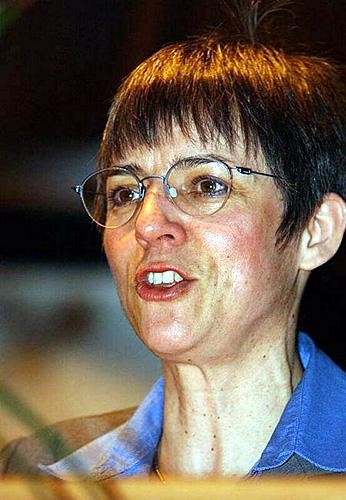McQuaid: Hamilton file to be studied soon
By Shane Stokes Olympic time trial champion Tyler Hamilton is due to return to racing after...

UCI aiming to complete investigation before current ban is up
By Shane Stokes
Olympic time trial champion Tyler Hamilton is due to return to racing after September 22 and has been targeting the world championships as his first major goal, but the American could possibly find himself hit with a new ban before turning a pedal in anger. Earlier this summer it emerged that Hamilton was implicated in the Operación Puerto affair, both through a fax reportedly sent to his wife Haven Hamilton under her maiden name of Haven Parchinski, and more recently through the publication of the details of the doping program he was alleged to have followed in 2003.
UCI President Pat McQuaid spoke to Cyclingnews earlier this week on the subject and said that the governing body will study the documents relating to his case prior to the end of his suspension. "If it is shown that the allegations are true, he could face further sanctions," stated McQuaid. Under the second offence rule, a guilty ruling would most likely see Hamilton hit with a life ban from the sport.
McQuaid said it is too early to say what will happen. "We haven't come to his file yet because we are dealing with the active riders first. Three lawyers have been working for seven weeks now on trying to get all the files done. The urgency is obviously on the active riders, and therefore any of the other older ones who are not active must wait until the end. But it will be done some time soon.
"The files relating to the current riders are nearly finished. They are in the process of being completed now. Some of them have already been sent, and others will follow shortly. They are going out of here on an ongoing basis."
When asked about the time scale for a decision on the Hamilton situation, McQuaid said it would be sooner rather than later. "I don't think it will go as far as next season, to be honest. I think it will be done some time later this year; it could be completed around the time his ban is due to end. I don't know exactly how many files are left to be processed here before that, but we will look at it as soon as possible."
Get The Leadout Newsletter
The latest race content, interviews, features, reviews and expert buying guides, direct to your inbox!
McQuaid also commented on Hamilton’s participation in the Mount Washington hill climb, an unsanctioned event which he won last Saturday. In March the rider competed in a race which was part of the Stazio Criterium Series in Boulder. The UCI were not impressed and successfully put pressure on him to desist by threatening to freeze the licences of any riders who competed against him in these races.
The UCI President seemed to rule out the possibility of any such measures now. "I would imagine that it [Mount Washington] is an unapproved race. I presume it is a event that is not on the US cycling calendar, because if it was, he would not be allowed to ride it. Therefore, if he competes in any of those events, he can do so... I don't know what the quality of the field was like, who was in it - it is just one of those kind of races that he can ride if he wishes."
McQuaid also commented on the Floyd Landis case, specifically on the time scales for appeals and for the disqualification of the rider from position of Tour de France champion (or confirmation of his win, should the appeals prove successful).
"It is really up to Floyd as to how long all of this continues," he said. "He first of all has to face the USADA and then decide what he wants to do after that. I don't know how long it could go on - I think the Hamilton case went on for 18 months or something like that. That is probably the maximum length of time the Landis case would take. But I believe that from my understanding of it, if he is sanctioned by USADA then he loses the Tour de France title straight away - it can’t be taken away before that point. It is then up to him to decide what to do after that."
Landis would have the option of appealing any such decision to CAS, seeking to show that the charges are false or unfounded.